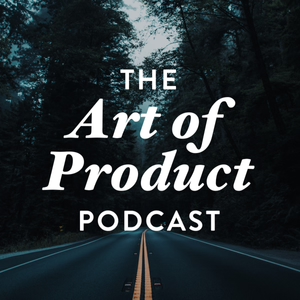
Staying Global (with Bejul Somaia)
08/01/23 • 53 min
Lightspeed Venture Partners can sometimes live in the shadow of its noisier rivals.
Andreessen Horowitz has a massive war chest, sprawling payroll, and insatiable appetite for attention. Meanwhile, Sequoia Capital is, well, Sequoia.
But Lightspeed has established itself as one of the top multi-stage technology investors of this era. In July 2022, Lightspeed announced that it had raised more than $7 billion to invest in startups. Now, as Sequoia spins off its Chinese and Indian venture capital arms and as Lightspeed builds out its presence in Europe, Lightspeed is looking like one of the most globally-oriented venture capital firms.
I invited Bejul Somaia on the Newcomer podcast to talk about Lightspeed’s investments in India and its global strategy. Somaia is one of the leaders of the firm and relocated to the United States after many years investing for Lightspeed in India.
“We want to see, access, and compete for the best opportunities wherever they are,” Somaia told me.
Venture capital investments in India fell to $25.7 billion in 2022 from $38.5 billion in 2021.
“Forcing capital into these companies is not necessarily the answer and I think we’ve learned that time and again,” Somaia said.
“2021 — we know was out of control everywhere. But in shallow markets, out of control is even more damaging because the asset price inflation is even more significant in shallow markets. The movements are more jarring,” he said. A correction was healthy, necessary, and painful.
Get full access to Newcomer at www.newcomer.co/subscribe
Lightspeed Venture Partners can sometimes live in the shadow of its noisier rivals.
Andreessen Horowitz has a massive war chest, sprawling payroll, and insatiable appetite for attention. Meanwhile, Sequoia Capital is, well, Sequoia.
But Lightspeed has established itself as one of the top multi-stage technology investors of this era. In July 2022, Lightspeed announced that it had raised more than $7 billion to invest in startups. Now, as Sequoia spins off its Chinese and Indian venture capital arms and as Lightspeed builds out its presence in Europe, Lightspeed is looking like one of the most globally-oriented venture capital firms.
I invited Bejul Somaia on the Newcomer podcast to talk about Lightspeed’s investments in India and its global strategy. Somaia is one of the leaders of the firm and relocated to the United States after many years investing for Lightspeed in India.
“We want to see, access, and compete for the best opportunities wherever they are,” Somaia told me.
Venture capital investments in India fell to $25.7 billion in 2022 from $38.5 billion in 2021.
“Forcing capital into these companies is not necessarily the answer and I think we’ve learned that time and again,” Somaia said.
“2021 — we know was out of control everywhere. But in shallow markets, out of control is even more damaging because the asset price inflation is even more significant in shallow markets. The movements are more jarring,” he said. A correction was healthy, necessary, and painful.
Get full access to Newcomer at www.newcomer.co/subscribe
Previous Episode

Psychedelics, Micro Nuclear Reactors & Venture Turbulence (with Rebecca Kaden)
Union Square Ventures has some of the best performing funds in the venture capital industry.
As I’ve reported, USV-backer UTIMCO disclosed in a recent filing that USV had delivered the public investment fund an internal rate of return of 59%. And that number will likely go up over time. (For instance, USV portfolio company Casetext sold to Thomson Reuters for $650 million after the UTIMCO performance update.)
I invited USV managing partner Rebecca Kaden onto the Newcomer podcast to talk about how USV consistently invests in unconventional companies.
We started off our conversation talking about Journey Clinical, the psychedelics company, in which Kaden announced a Series A investment in January.
We also discussed USV’s $200 million climate fund strategy, her interest in the AI application layer, and how rising interest rates are effecting the venture capital asset class.
Give it a listen
Highlighted Excerpts
The transcript has been edited for clarity.
Eric: How do you repeatedly invest in weird things like psychedelics?
Rebecca: This thesis around access to care, which has attracted so much capital — some of it ours and is proving to be a good category — has been where the market has gone, but it’s actually only one piece of the puzzle. The way we get into things that are unusual is by having strong theses about where things are going versus being extremely opportunistic. Obviously, there’s a balance. But that thesis thinking is important. A lot of thesis work on this category really led to the belief that access to care is only half the puzzle. The other is how is care itself going to evolve, and you start unraveling that thread: how is care itself evolving? The real biggest last evolution of care is SSRIs. Those are prescription drugs and have been very important to the treatment for mental health crises, but there’s a lot of things they don’t treat. They’re not a one size fits all model. And they’re basically all we got, right? The innovation has not had a lot of other layers, except for psychedelics. And so we became very interested in psychedelics as the next card to get turned over and the next option in needing a bucket of options to treat a crisis.
Eric: There are pharmaceutical companies. If there’s money to be made, shouldn’t they be trying? What’s happening that it feels like you need a real outsider thinking to bring ketamine, a drug that’s legal, to people’s lives that the medical system is unable or unwilling to do what’s happening?
Rebecca: Well, this isn’t really unique to psychedelics or to mental health. Pharmaceutical companies make drugs, so the development of drugs goes with them, but the distribution and networks of access is outside of it. That’s not particularly new or unique here. That’s where business opportunity has been. So the idea is, when you talk about distribution and networks of access, that’s often where these business opportunities lie. The development of drugs is kind of a different beast, which lies in the pharmaceuticals. Why is there a business opportunity with creating access? Because the same reason technology drives business opportunity into anything. Offline access is slower, it’s more gated; it’s more piecemeal. You have to be at the right doctor at the right time, you have to find it. By creating a network, you just allow anyone anywhere to find access and education at a faster speed and with much broader supply, which brings efficiency to the market.
Eric: Do you think mushrooms are going to be on the table soon? Or how much was this a bet that the regulatory regime would change?
Rebecca: I don’t think mushrooms as we think about them in a recreational sense are just gonna get legalized, maybe they will, but that’s a separate kind of thing. I think other forms of psychedelics in formats that are right for care are very much going to get legalized. And actually, as we did our research, to us that’s a when not an if. When you dig into what’s going on clinical trials and in the clinical world, in some ways that seems pretty easy to bet on that these will continue to happen. And if not exactly the form that we’ve outlined, rapid new forms of options for care for mental health diseases are going to get approved and released. They’re going to need a network of education and distribution to go into the therapist network.
I do think there’s a regulatory risk here. There’s some ...
Next Episode

Scaling People (with Claire Hughes Johnson)
Claire Hughes Johnson writes in her book, Scaling People, about a moment early on in her time at Stripe when an Irish journalist shouted to her, “You’re the lady! You’re the lady with the lads!”
Hughes Johnson, who joined Stripe in 2014 as the payments startup’s chief operating officer, works closely with two of the most iconic Silicon Valley entrepreneurs, Patrick and John Collison. During her tenure as COO, she helped bring her management know-how from Google and experience working for Sheryl Sandberg to help organize the growing company.
I invited Hughes Johnson on the Newcomer podcast to talk about her time at Stripe and the management lessons that she has put down on paper in Scaling People, which she published this year. Toward the end of our conversation, Hughes Johnson turned the tables on me and gave me some coaching.
Our conversation circles around two sections of her book, in particular. We talked about giving feedback and honesty in a corporate setting. She talked about her principle that managers should encourage people to “say the thing you cannot say.”
She writes,
How often have you sat in a meeting and mused, “It really feels like there’s something that isn’t being talked about right now”? Or had a conversation with a report and thought, “I think they’re getting upset about what I’m saying”? Or caught yourself filtering everything you say? These questions prompt a bigger one: Why don’t managers say what’s actually on their minds?
People often think that good management is about having a lot of filters, and for good reason. There’s a lot that might feel risky to say, or that feels like a personal judgment. But be wary of over-filtering. Fine-tuning your filters and pushing yourself to name your observation in a constructive way means you’ll be able to have a more honest conversation about what’s going on. Then you can all start working on a solution in earnest.
Hughes Johnson concludes scaling people with a chapter titled, “You.” It looks at how managers manage themselves.
She writes,
The more senior you become, the more creative reality gets at finding ways to beat you up every day. You will have days—sometimes many in a row—when your highest performer is threatening to quit, a top customer has just informed you that they’re moving to a competitor, you’re leading a company-wide meeting the next day and haven’t had time to prepare, and the cross-functional project you kicked off last week is already going off the rails. Many people don’t have the psychological strength and resilience to keep going. In The Hard Thing About Hard Things, Ben Horowitz calls this “the struggle,” when “nothing is easy and nothing feels right.”
To make it all work, you have to learn how to manage your time and energy. First, diagnose what gives and takes your energy. The easiest way to do this is to map out your good and bad days and track what activities add to and detract from your energy. An easy tactic is to keep check marks on your calendar of good days and bad days. After a month, look at all the good days and all the bad days, and then the good weeks and bad weeks, and see what trends jump out. When I did this exercise, I found that the weeks when I had more than one work event that kept me from having dinner with my kids and getting them to bed were bad weeks. I then resolved to restrict my work-related late nights to once a week—a personal guideline that I occasionally break, but not often. Your goal is to study what combination of time spent on which activities creates your best performance, then determine where you need to set boundaries to preserve your strongest self.
Coming up as a reporter, I was always resistant to “management” and “leadership” advice. Those words made me think of Dale Carnegie books and cash-grab leadership seminars. But as I’ve started to build Newcomer into more of a company (we’ve got a full-time chief of staff, three summer interns, and am looking to hire a full-time reporter), I’ve come around to the idea that being intentional about how you spend your time and how you work with people are essential skills, worthy of serious reflection.
These days, Hughes Johnson is a corporate officer and advisor at Stripe. She’s spending a lot of her time working with individual managers and offering coaching inside the company. So we got a taste of how Stripe’s management guru thinks.
I really enjoyed our conversation. Give it a listen.
Highlighted Excerpts
T...
If you like this episode you’ll love
Episode Comments
Generate a badge
Get a badge for your website that links back to this episode
<a href="https://goodpods.com/podcasts/newcomer-podcast-218840/staying-global-with-bejul-somaia-32102274"> <img src="https://storage.googleapis.com/goodpods-images-bucket/badges/generic-badge-1.svg" alt="listen to staying global (with bejul somaia) on goodpods" style="width: 225px" /> </a>
Copy




